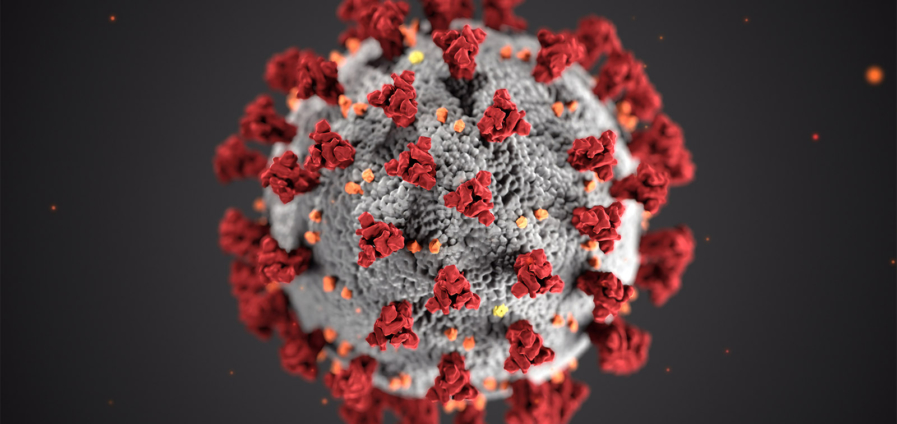Last week, Harvard University’s Edmond J. Safra Center for Ethics released its Roadmap to Pandemic Resilience. The plan provides the nation’s first comprehensive roadmap for mobilizing and reopening the U.S. economy amidst COVID-19.
Although the roadmap calls for a massive scale-up of testing, tracing and supported isolation (TTSI) in the U.S., the bipartisan group of experts acknowledges this approach is not feasible — or socially responsible — on a global scale.
New White Paper: With COVID-19 on the verge of exploding in developing nations, Harvard’s Center for Ethics just released a new white paper: “Towards Global Pandemic Resilience.” In the paper, authors from six leading universities make the case for a holistic strategy towards global pandemic resilience. While they call for international policy coordination, they emphasize that a global response must prioritize vulnerable populations and be flexible enough to address local needs, capabilities and resources.
To make this case, the paper analyzes three regions in the Global South that collectively make up 40% of the world’s population: India, Africa and Latin America. It then assesses the possibilities and challenges — in particular, significantly higher human costs associated with extended lockdowns — of adapting the TTSI model in each region, with the goal of highlighting broader considerations for developing a global strategy.
Media Opportunity: As you cover the world’s response to COVID-19, I wanted to offer one of the paper’s co-authors, Dr. Francis Annan, as a resource. Dr. Annan is an associate professor at the Robinson College of Business at Georgia State University and a fellow at the Center for Development Economics and Policy at Columbia University. He is available to discuss:
- The importance of a coherent global resilience strategy and why it must account for significant differences in local conditions
- Considerations for tackling COVID-19 in India, Africa, Latin America and other low-income regions
- Alternative policy trajectories — beyond authoritarian lockdowns — that can help transition back to work and social activity while safeguarding human lives
White Paper Recommendations: Click here to download the complete paper
Global pandemic resilience will not be achieved one region at a time. However, regions differ sharply in their levels of medical and public health infrastructure, population density, concentrated poverty, access to technology, ability to bid on global markets, institutions of social support and more.
Hence, a holistic global strategy needs to account for significant differences in local conditions and be flexible enough to accommodate them. To that end, authoritarian lockdowns in the Global South and similar low-income regions could lead to large-scale suffering, human rights violations and widespread starvation. In response to these challenges, the paper provides several recommendations:
- Governments must massively invest in manual contact tracing: Large-scale manual tracing can supplement or replace technology-augmented tracing, and precise tracing can reduce the number of tests needed by a factor of ten or more.
- Relief programs must be expanded to account for the massive need for food, water and shelter: During the current lockdown period, and if lockdowns are extended, temporary shelters and kitchens can be built in conjunction with testing and hospital facilities. Further, existing unemployment and relief programs must be expanded to cover the informal sector, as well as other at-risk groups.
- Existing regional and international organizations must play a significant role: For example, in the attempt to ramp up testing, many low- and middle-income countries will need to compete on international markets. Rather than drive up prices by competing against each other, countries in the Global South may consider forming a consortium to negotiate as a bloc.
- Support from the International Monetary Fund and World Bank will be critical: These organizations will make it possible to finance widespread emergency relief, testing and health programs. Additionally, a model of international cooperation must prioritize the needs of the most vulnerable, and work as much as possible through existing democratic and domestic structures.
Latest Stories
-
Reshaping Africa’s Digital PR Future – Authentic communication with local relevance
5 minutes -
Supreme Court nominee says there is nothing wrong with number of justices on Supreme Court bench
10 minutes -
Payment of nursing trainees’ allowances to be automatic – Mahama
11 minutes -
University of Ghana suspends 14 students, sanctions 97 for exam misconduct
16 minutes -
Personal beliefs must not interfere in rulings on same-sex cases – Supreme Court nominee
18 minutes -
Oil prices fall slightly, but Ghana still at risk as Israel–Iran conflict continues
25 minutes -
Justice Sir Dennis Adjei advocates abolition of mandatory death penalty in Ghana
26 minutes -
Ghana urges Israel and Iran to de-escalate
26 minutes -
Minority urges Supreme Court nominees to be guardians of fundamental laws, not instruments of executive convenience
48 minutes -
Zoomlion Ghana endorses gov’t accountability measures under expired YEA contract
1 hour -
Agric Minister inaugurates new Buffer Stock Board
1 hour -
Trump Organisation enters mobile phone business
1 hour -
Social media now main source of news in US, research suggests
1 hour -
Nuclear threat real, missiles already launched – Israeli envoy justifies attacks on Iran
2 hours -
Iran has wanted to erase us since 1979 – Israeli Ambassador to Ghana
2 hours

